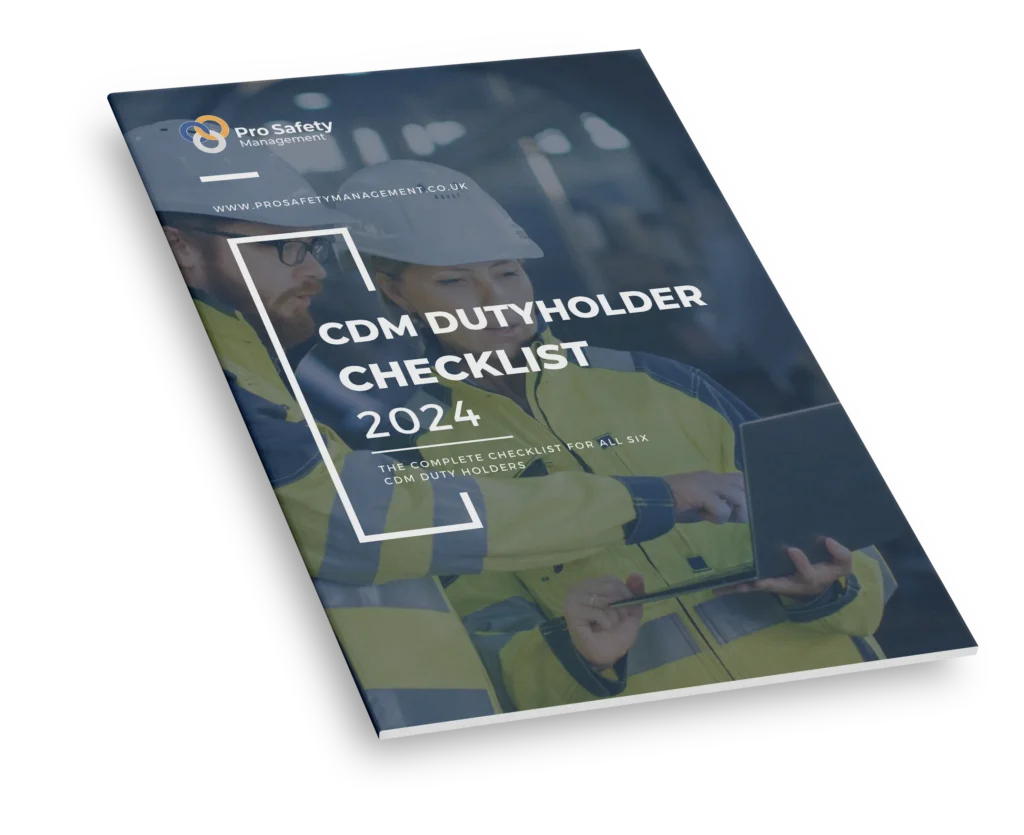Prohibition Notice
As a caring and responsible employer or manager, you take health and safety seriously. Even with the best of intentions, sometimes things can go wrong. For some issues, you might be on the receiving end of a verbal or written warning, or a notice to improve health and safety standards. For the most grave of health and safety breaches, you could face a Prohibition Notice. This is something that you want to avoid, of course, and deal with swiftly and carefully to prevent serious consequences.
This post will help you understand what a prohibition notice is, why you need to take it seriously, and how you can make sure you don’t end up in trouble for a health and safety breach.
What is a Prohibition Notice?
If you are issued with a Prohibition Notice, you need to pay attention and take action. A Prohibition Notice comes from the Health and Safety Executive (HSE) and is the highest form of health and safety sanction (Enforcement Notice). It is a warning to stop work immediately where there is an imminent threat of injury or death. A Prohibition Notice can apply to any working situation, including small manufacturers, professional services, and the telecoms sector. Even if your line of work doesn’t seem to be high-risk, this is relevant to you!
You can be visited by and HSE inspector for various reasons. It might be a random spot check, a follow-up inspection after an accident, or due to a complaint about a potential health and safety breach. If an HSE inspector sees a need to prevent or stop unsafe practices and serious breaches of health and safety in your organization, you can be given a Prohibition Notice. This will usually be issued directly to the person doing the dangerous activity, and then to the legally responsible employer.
A Prohibition Notice involves:
- A written warning – to terminate a practice immediately (or deferred notice, if it would be too dangerous to interrupt a process immediately) until the situation has been rectified (NB. Unlike the less-serious Improvement Notice, a Prohibition Notice stays in place during any appeal process)..
- Information – the nature of a risk, and which law or legislation is being broken, or likely to be broken.
- Instructions – what needs to be done to rectify the situation.
- Notification – criminal prosecution may follow.
If you find yourself on the receiving end of a Prohibition Notice, you must take action right away to make things right. This is serious business, that you can’t ignore.
Why is a Prohibition Notice important?
If you get a Prohibition Notice, it means that something has gone seriously wrong in your health and safety procedures, putting some of the people you work with at risk. Aside from the personal and human consequences of a dangerous working environment, a significant breach in health and safety legislation is a matter of criminal law.
Receiving a Prohibition notice can have terrible consequences for your business, including:
- Termination of work – Some or all of your business may be shut down until the health and safety breach is rectified. This may include shutting down a machine or part of a factory, closing an office or warehouse, or shutting down production entirely. This could result in expensive loss of business.
- Public register of Prohibition Notices – All Prohibition Notices remain on the register for 5 years, which can result in a serious dent in your organization’s reputation in the business world, with clients, the public, and local authorities.
- Prosecution – Failure to comply with a Prohibition Notice is a criminal offence, and can result in hefty fines and even custodial sentences. Some very grave health and safety breaches can also result in direct prosecution.
- Brand damage – If you fail to resolve the notice then you could end up in court with both your personal reputation and that of your business in tatters. This could mean your client decides you’re too risky to employ on that next contract, costing you ££££.
- Attracting talent – It’s more important than ever to attract the best talent to your business and showing that you care about people is a strong advertisement that you are a supportive employer. Unemployment in the UK is at it lowest in over 40 years and the global employment market means talented people are more likely to scrutinise businesses before applying for their next role. Make a good impression on google with a clean business profile.
It’s a daunting prospect, but forewarned is forearmed. Make sure you know the risks involved in poor health and safety, and you will make it a priority to look after your staff and workplace safely and effectively.
What should be done about Prohibition Notices?
First and foremost, you should do everything that is practicably possible to make sure you never get a Prohibition Notice. This means keeping informed about health and safety best practices, and building a clear and thorough health and safety procedures, including training, risk assessments, and good record-keeping, to protect the people you work with.
If something does go wrong, you should do the following:
Cooperate with the HSE – Remember that the HSE are acting in the best interests of the people you work with, so any advice, recommendations, or enforcement, should be taken as an opportunity to learn and improve. Try to make a good impression, be polite, and stay calm. Don’t antagonise or obstruct an inspector in their work – it will only frustrate them and lead to more scrutiny.
- Respond to the Notice – Ignoring a Prohibition Notice will only make things worse. It wil result in a fine and prosecution, and will reflect badly on you in the eyes of the law, and the wider community. Don’t risk your reputation by keeping your head in the sand. Cooperation looks good.
- Seek help. – Contact a health and safety consultant, who can help you understand what has gone wrong, how the law works, and what you need to do to make things right.
Try to remember that a Prohibition Notice exists to protect the people that you work with, and approach it positively and proactively. How you deal with a Prohibition Notice reflects on you as an employer, and the time of health and safety culture you want to foster in your organization.
Sometimes you can forget that people are you biggest asset. You become so focused on production or hitting targets that you unconsciously take risks. I’ve met many business owners that are caring and considerate people, but for whatever reason fail to make time to complete those risk assessments or maintain safe systems of work.
The best advice I can give you is to take time to reflect on how things can go wrong, and what the consequences are if the worst comes to the worst. Everyone at some stage makes mistakes. Don’t hide from your mistakes, but do your best to rectify and learn from them. Working together with your staff to prevent health and safety breaches, and to fix problems in a cooperative and collaborative work culture, will ensure your business stays healthy and productive.
Has your organization been issued a Prohibition Notice? Leave a comment below if you have any questions!


